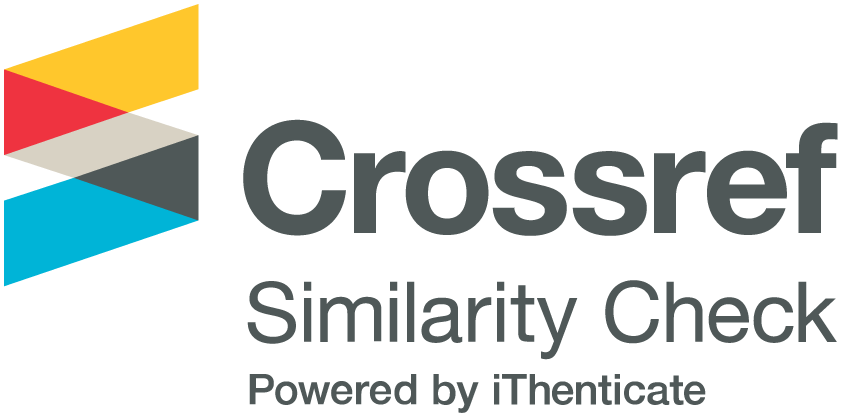A Reading of the 2030 Agenda from the Paradigm of Socio-ecological and Intercultural Sustainability
Application in Coastal Territories of Vulnerable Fishing Communities
DOI:
https://doi.org/10.54790/rccs.99Keywords:
Agenda 2030, vulnerable communities, Delphi, territorialization, indicators, intercultural and socioecological sustainabilityAbstract
The 2030 Agenda constitutes a global reference framework to promote social, economic and environmental development processes. However, its adequate territorialisation presents notorious challenges, as it is a complex and multidimensional agenda that requires localised interpretations. We present a reading of the Agenda in coastal territories of vulnerable fishing communities that can help to promote socio-ecological sustainability interculturally. In these areas, socio-cultural dynamics and environmental impacts are sidelining such communities that maintain traditional ways of life and identities of profession, as well as knowledge for the care and development of a way of life in these socio-ecological spaces. We used the Delphi Method and dialogue between fishing communities in Andalusia and the Colombian Caribbean and experts to jointly create a system of indicators that, adapting those of the 2030 Agenda, allows us to monitor the development challenges they face.
Downloads
Metrics
References
Armitage, D., Charles, A. y Berkes, F. (Eds.) (2017). Governing the Coastal Commons: Communities, Resilience and Transformation. New York: Routledge/Taylor & Francis. https://doi.org/10.4324/9781315688480 DOI: https://doi.org/10.4324/9781315688480
Arroyo-Ilera, F. (2021). Objetivos de Desarrollo Sostenible: Contradicciones e incertidumbres. Revista Encuentros multidisciplinares, 23, 69 (septiembre-diciembre). ISSN-e 1139-9325,
Asamblea General de las Naciones Unidas (2015). Transforming our world: the 2030 Agenda for Sustainable Development. New York: United Nations.
Berkes, F. (2015). Coasts for People. Interdisciplinary Approaches to Costal and Marine Resource Management. New York: Routledge. https://doi.org/10.4324/9781315771038 DOI: https://doi.org/10.4324/9781315771038
Bitoun, R. E., Léopold, M., Razanakoto, T., Randrianandrasana, R., Akintola, S. L., Bach, P. y Devillers, R. (2024). A methodological framework for capturing marine small-scale fisheries’ contributions to the sustainable development goals. Sustainability Science, 1-19. DOI: https://doi.org/10.1007/s11625-024-01470-0
Bolaños, O., Herrera, J. y Arrieta, M. R. (2020). Collective land tenure in island areas of Colombia: Legal challenges and obstacles. Proceedings of the World Bank Conference on Land and Poverty.
Camiñas, J. A., Domínguez, J. B. y Abad, R. (2004). La pesca en el Mediterráneo andaluz. Servicio de Publicaciones de la Fundación Unicaja.
Cañizares Cedeño, E. L. y Suárez Mena, K. E. (2022). El Método Delphi Cualitativo y su Rigor Científico: Una revisión argumentativa. Sociedad & Tecnología, 5(3), 530-540. https://doi.org/10.51247/st.v5i3.261 DOI: https://doi.org/10.51247/st.v5i3.261
Castree, N. (2003). Commodifying what nature? Progress in human geography, 27(3), 273-297. DOI: https://doi.org/10.1191/0309132503ph428oa
Florido del Corral, David (2020). Hibridaciones de saberes y lógicas culturales en la pesca. Estudios Atacameños, 65, 21-45. https://doi.org/10.22199/issn.0718-1043-2020-0019 DOI: https://doi.org/10.22199/issn.0718-1043-2020-0019
Fuso Nerini, F., Tomei, J., To, L. S., Bisaga, I., Parikh, P., Black, M. et al. (2018). Mapping Synergies and Trade-offs Between Energy and the Sustainable Development Goals. Nature Energy, 3(1), 10-15. DOI: https://doi.org/10.1038/s41560-017-0036-5
Harvey, D. (2003). The New Imperialism. Oxford/New York: Oxford University Press. DOI: https://doi.org/10.1093/oso/9780199264315.001.0001
Hepp, P., Somerville, C. y Borisch, B. (2019). Accelerating the United Nation’s 2030 Global Agenda: Why prioritization of the gender goal is essential. Global Policy, 10(4), 677-685. DOI: https://doi.org/10.1111/1758-5899.12721
Jover-Báez, J., Barrero-Rescalvo, M. y Díaz-Parra, I. (2023). ‘All our eggs in one basket’: touristification and displacement amidst the pandemic in Seville, Spain. City, 27 (5-6), 829-849, https://doi.org/10.1080/13604813.2023.2225233 DOI: https://doi.org/10.1080/13604813.2023.2225233
Labonté, R., Hadi, A. y Kauffmann, X. E. (2011). Indicators of Social Exclusion and Inclusion: A Critical and Comparative Analysis of the Literature. É/Exchange Working Papers Series, 2(8), 1-142.
Maldonado Valera, C., Marinho, M. y Robles, C. (2020). Inclusión y cohesión social en el marco de la Agenda 2030 para el Desarrollo Sostenible: claves para un desarrollo social inclusivo en América Latina, Documentos de Proyectos (LC/TS.2020/59). Santiago: Comisión Económica para América Latina y el Caribe (CEPAL).
Nevins, J. y Peluso, N. L. (2008). Introduction: Commoditization in Southeast Asia. En Taking Southeast Asia to market: Commodities, nature, and people in the neoliberal age (pp. 1-26). SIRD. DOI: https://doi.org/10.7591/9781501732270
Prudham, S. (2009). Commodification. A companion to environmental geography (pp. 123-142). Blackwell. DOI: https://doi.org/10.1002/9781444305722.ch9
Sanahuja, J. A. (2019). Crisis de la globalización, el regionalismo y el orden liberal: el ascenso mundial del nacionalismo y la extrema derecha. Revista Uruguaya de Ciencia Política, 28(1), 59-94. https://doi.org/10.26851/rucp.28.1.3 DOI: https://doi.org/10.26851/RUCP.28.1.3
Senent-De Frutos, J. A. y Herrera Arango, J. (2022). Contributions of Intercultural Socioenvironmental Justice to the 2030 Agenda in the Colombian Caribbean. Land, 11(6), 835. DOI: https://doi.org/10.3390/land11060835
Serrano, L. y Sianes, A. (2023). Una mirada al Derecho a la ciudad en clave de gobernanza global: límites y limitaciones de la Agenda 2030. Agenda 2030, Derechos Humanos y territorios. Madrid: Tirant lo Blanch.
Sianes, A. (2021). Academic research on the 2030 agenda: challenges of a Transdisciplinary field of study. Global Policy, 12(3), 286-297. DOI: https://doi.org/10.1111/1758-5899.12912
Slater, T. (2017). Planetary Rent Gaps. Antipode, 49, 117-139. DOI: https://doi.org/10.4337/9781785361746.00017
Vela-Jiménez, R. y Sianes, A. (2021). Do Current Measures of Social Exclusion Depict the Multidimensional Challenges of Marginalized Urban Areas? Insights, Gaps and Future Research. International Journal of Environmental Research and Public Health, 18(15), 7993. https://doi.org/10.3390/ijerph18157993 DOI: https://doi.org/10.3390/ijerph18157993
Vela-Jiménez, R. y Sianes, A. (2023). Desafíos para la gobernanza participativa de las políticas de transformación social en los barrios desfavorecidos de Andalucía: adopción multinivel y adaptación al territorio. Universidad Loyola Andalucía. https://repositorio.uloyola.es/handle/20.500.12412/4034
Vela-Jiménez, R., Sianes, A., López-Montero, R. y Delgado-Baena, A. (2022). The Incorporation of the 2030 Agenda in the Design of Local Policies for Social Transformation in Disadvantaged Urban Areas. Land, 11(2). https://doi.org/10.3390/land11020197 DOI: https://doi.org/10.3390/land11020197
Downloads
Published
How to Cite
Issue
Section
License
Copyright (c) 2025 Antonio Sianes, Johana Herrera-Arango, Manuel Enrique Pérez-Martínez, Laura Serrano, Rocío Vela-Jiménez, Carmen Ana Castaños Gómez, Juan Antonio Senent de Frutos

This work is licensed under a Creative Commons Attribution-NonCommercial-ShareAlike 4.0 International License.
Funding data
-
Fundación Pública Andaluza Centro de Estudios Andaluces
Grant numbers PRY123/22 De costa a costa:retos socioecológicos en los litorales de Andalucía y el Caribe frente a la Agenda 2030










